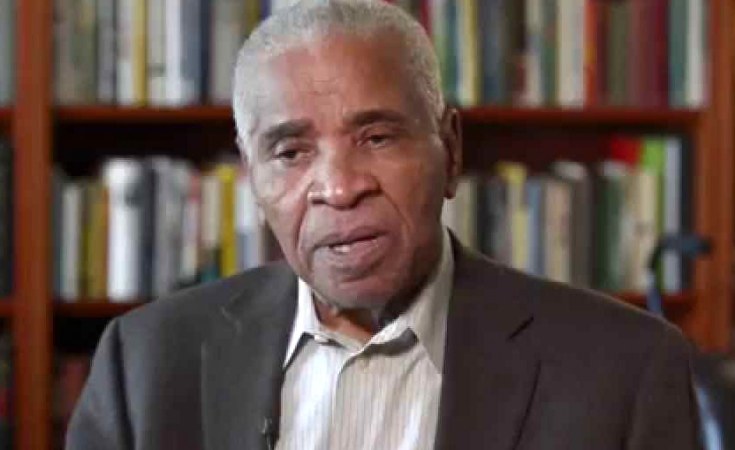When members of the Peace Corps community recall the various leaders who propelled the agency forward in its infancy, one of the names regularly referenced is C. Payne Lucas, who passed away September 15th at the age of 85. Botswana RPCV and former Peace Corps headquarters staff Tony Carroll offers this tribute.
I read about C. Payne Lucas long before I met him. I spent three years as Assistant General Counsel at the Peace Corps from 1986-89. One of my jobs was to organize the agency's legal opinions in an orderly fashion. As a result, I would scan the opinions to determine which category they belonged. An inordinate number of these referenced either as an address or subject matter a certain C. Payne Lucas.
What I surmised from this body or jurisprudence were the efforts of a staff member who constantly pushed the agency in new directions – sometimes going against the grain of leadership but always on the side of Peace Corps Volunteers. At some point, my boss - Director Loret Miller Ruppe - invited me into a meeting with C. Payne to discuss how Peace Corps could increase its recruitment efforts at Historically Black Universities.
Upon leaving Peace Corps legal office I joined a law firm with several African offices and which contributed to Africare, C. Payne's remarkable non-governmental organization. Africare not only raised and spent a billion dollars on needy projects across Africa but via its good deeds and occasional advocacy, brought Africa into the lives of millions of Americans. He also mentored hundreds of young men and women who embarked upon careers in education, development and business. And amid it all, I never heard him speak an ill word about anyone. I can think of no one person whom connected Africa to African Americans more than C. Payne.
Africare's Bishop Walker dinner was once a highlight on Washington's social calendar and at it I met such awardees as Bono, Harry Bellefonte and Ethiopian President Meles Zanawi (who gave a 45-minute speech that started at 10:30 pm!). Both Loret Miller Ruppe and Sarge Shriver were also honored for their service.
C. Payne's personal story was as compelling as his contributions to Peace Corps and economic and social development. He was one of sixteen children and was raised in rural North Carolina where he picked cotton to support his younger siblings. He completed college at the University of Maryland-Eastern Shore in 1959 after having served four years in the US Air Force. He joined the Peace Corps after attaining an MA from American University and spent ten years as APCD and Country Director in Togo and Niger, Assistant Director of Africa and Assistant Director for Recruitment.
My last memory of C. Payne was at the 50th anniversary of Peace Corps at my alma mater, the University of Wisconsin. C. Payne was on a panel with Ambassador Johnnie Carson (PCV Tanzania) John Campbell and Mark Green (now Administrator of USAID) and the legendary Bill Josephson, one of the first general counsels of Peace Corps and a law partner of Sarge Shriver.
If Bill was the intellectual font of Peace Corps, C Payne was it heart and soul. Needless to say, many of the above-mentioned opinions were written in response to something C Payne did or wanted! It was fun to see these two great men relive these early days of the Peace Corps. As the program came to a close, C. Payne concluded his remarks with a quote from his beloved Alfred Lord Tennyson: "better not be at all than not be noble".
Farewell noble Prince of Peace!
This article originally appeared in the National Peace Corps Association newsletter Peace Corps Connect.


